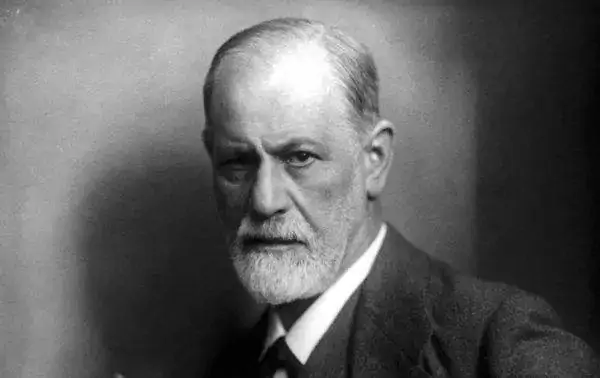In fact, this is a late reading, the first read “Black Swan” should be almost two years ago. Just because I have been suffering from no way to start, so it has been delayed until now.
The reason why I can’t start is really due to my limited knowledge. After all, to truly understand the author’s thoughts, I need to have a clear understanding of many concepts in the book, and many concepts only gradually became clear after I read many times and consulted many materials.
I have to admire the author’s erudition, this strange book covers many aspects from philosophy, mathematics, psychology, economics, history and even literature. Almost every paragraph is enlightening and thought-provoking. Pearls of thought are scattered in every corner of the book, and almost every time I reopen the book, I will learn something.
I have been thinking about how to connect the author’s thoughts in the book through a reading. In the end, it was decided that it would be best to diverge from the central black Swan idea. One of the author’s central arguments throughout the book is that in a world of extreme Stan, black swans are bound to emerge.
Up to now, the concept of the black swan seems to have been used by the media. It is an emergency, and the media hyped up the black swan, in fact, they did not understand what the black swan is.
What is a black swan? Black swans are extreme events with the following characteristics: 1, rarity, unexpectedness, unexpected; 2. can produce extreme effects or results. 3. After the event, it becomes explainable and predictable due to the existence of narrative fallacy.
So only the financial crisis of 2008 can be considered a black swan, or even not (because it is a grey swan to the author). Well, in order to understand all of this we need to first understand when black swans are produced. The answer is that black swans are produced in extremely stable environments. So what is the concept of extreme and average stable? Well, we have to understand breakthrough, because the difference between extreme Stan and average Stan can only be understood if we really understand what breakthrough is. For example, everyone’s income is extreme stans (one person’s income can be much higher than another person’s, even tens of thousands of times higher), while people’s height is average stans (one person can’t be ten times taller than another person). Black swans come from extreme Stans, and the impact of a black swan event is far greater. The black Swan event is unpredictable. In order to explain this, the author also introduces fractal, chaos, butterfly effect and three-body problems to explain human’s ignorance of complex systems, and finally expresses the sad conclusion that the world cannot predict. When the black swan actually happens, people will make it seem less mysterious through post-summary and theoretical description. People seem to be able to explain and predict the black swan event, which is the narrative fallacy.
The author argues that the narrative fallacy is actually a cognitive illusion, where we think we know things we don’t really know, namely “You can’t tell the shape of ice from a puddle of water,” and that the hindsight effect is actually a human cognitive fallacy (described in Daniel Kahneman’s book) that may have something to do with our brains, That is to say, from a biological point of view, it is a psychological habit of human beings. In the description after the event, there is another kind of fact easily ignored by us, the author called “silent evidence”. When I first realized this problem, I must admit that I was shocked, and the final conclusion was amazing. The existence of human beings itself is a series of lucky results, and we are the surviving “Casanova”. It makes me rethink the nature of the idiom “worrywart” and whether, in disparaging the alarmist, we are also ignoring the possibility of becoming a Turkey in 1,001 days. The fact that humans cannot fully understand black swans is also that we cannot understand our world through verification. We can only approach the truth through falsification. The story of the Butcher feeding the Chicken illustrates the fallacy of confirmation very vividly. We never know when the black Swan will happen, just as the chicken never knows when the butcher will reveal his knife. Just because something didn’t happen before doesn’t mean it won’t happen in the future. The author insists that black swans cannot be predicted, but there are plenty of people trying to predict the future in the real world, so the author departs a chapter (” The Shame of Prediction “) to criticize those who try to predict the future. (It’s important to note that in the natural sciences, predictions are sometimes okay, and even for complex weather systems, short-term predictions, if not precise, can help tremendously.)
The reason we can’t predict is because we have no way of knowing where the uncertainty is coming from, and the biggest risks to casinos come from outside the surveillance apparatus.
The real black swan comes from unknown unknowns, rather than the probability calculated by people using Gaussian curves. People attempt to use various models to calculate the uncertainty of the real world, which is ridiculous in the author’s opinion, which is the so-called fallacy of games. The authors argue that humans can’t predict black swans, but there are things we can do about them, such as being prepared for disasters, having enough redundancy, using leverage strategies to minimize negative black swans, and positioning ourselves to benefit greatly when positive ones do occur. (The author believes that this is the only way to make money in the financial market, but bear in mind that Simons’ Renaissance Technology company also uses various quantitative models to make investments and has maintained high profits for many years. Even Buffett uses his own investment strategy to make investments. So far, it is impossible to evaluate the author’s assertion.)
The significance of Black Swan for me is that it introduced me to many great philosophers, great thinkers. From Cicero, Sextus Empiric, Socrates, Plato, to David Hume, Montaigne, Bacon, Pierre Bayer, Pierre-Daniel Huete, Pengcare, Mandelbrot, Daniel Kahneman…..
Each has its own unique ideas and charm, and in the author’s pen, they tell their own ideas and ideas vividly. I have to thank Nassim Nicholas Taleb again for introducing me to all these people with extraordinary ideas, and for giving me a baptism of my own mind. It was really amazing. Just as Buffett said that Charlie Munger moved his mind from orangutan to human with extraordinary speed, I would say that Nassim Nicholas Taleb lifted my mind from infancy to at least adolescence.
Thanks again to Nassim, Black Swan is truly a great book.









